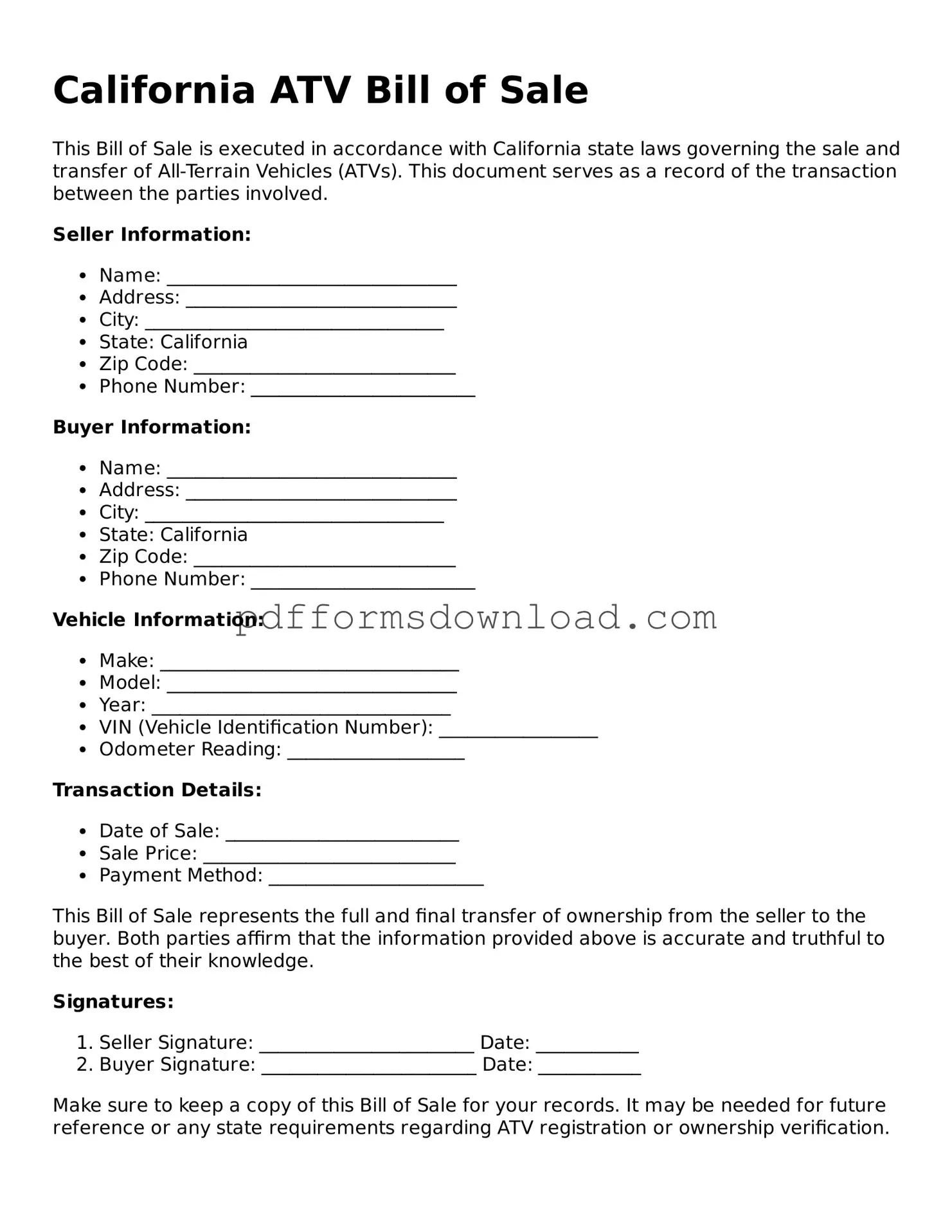Printable California ATV Bill of Sale Form
The California ATV Bill of Sale form is a legal document that serves as proof of the sale and transfer of ownership for all-terrain vehicles in California. This form includes important details such as the buyer's and seller's information, vehicle description, and sale price. Completing this form is essential for ensuring a smooth transaction and proper registration of the vehicle.
To fill out the form, please click the button below.
Make This Document Now

Printable California ATV Bill of Sale Form
Make This Document Now

Make This Document Now
or
Free PDF File
Your form is almost ready
Complete your ATV Bill of Sale online — edit, save, and download easily.